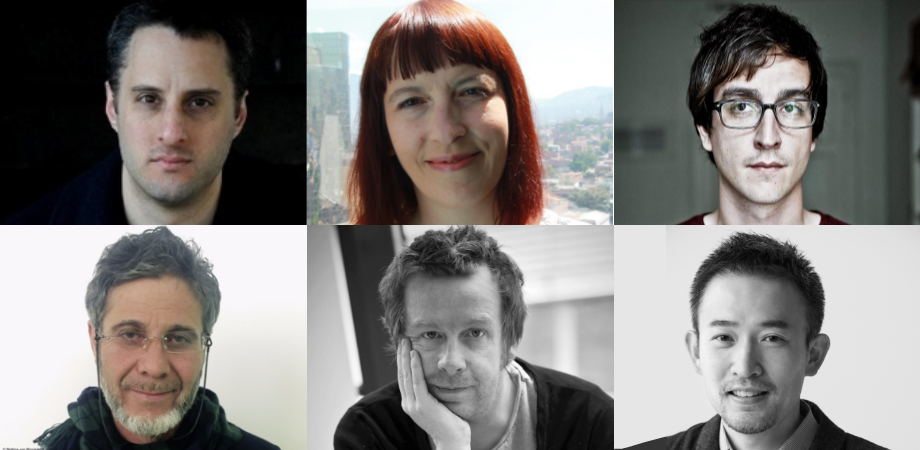
 EU
EU
English-Japanese simultaneous interpretation
23
Fri (National holiday)
16:40 - 18:10
EU Delegation to Japan
Schuman Auditorium
The European Union Prize for Literature (EUPL) is a prize for literary talent, awarded annually to new and emerging European authors from 37 countries. Since its foundation in 2008, it has been discovering new talents whose works now reach a wider and international audience beyond national and linguistic borders. Marking the 10th anniversary of EUPL, four laureates will present their respective literary works. They will then be joined by Kevin Barry, EUPL laureate in 2012, for a panel discussion moderated by Masatsugu Ono.
Adam FOULDS (UK)
Lidija DIMKOVSKA (Former Yugoslav Republic of Macedonia)
Jasmin B. FRELIH (Slovenia)
Walid NABHAN (Malta)
Kevin BARRY (Ireland)
Moderator/discussant: Masatsugu ONO
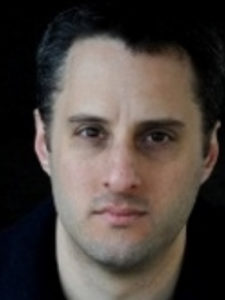
Adam FOULDS
Adam Foulds was born in 1974, went to Bancroft’s School in London, read English at St Catherine’s College, Oxford, and took an MA in creative writing from the University of East Anglia in 2001. He lives in south London.
His first novel, The Truth About These Strange Times (2007), won the 2008 Sunday Times Young Writer of the Year Award and a Betty Trask Award. This was followed by the long narrative poem, The Broken Word (2008), about Kenya’s Mau Mau uprising in the 1950s. It was shortlisted for the 2008 John Llewellyn-Rhys Memorial Prize and the 2009 Sunday Times Young Writer of the Year Award, and won a Somerset Maugham Award and the 2008 Costa Poetry Award. The Quickening Maze (2009) was his second novel. A powerful fictionalized account of the poet John Clare’s incarceration in an asylum in 1840, it was shortlisted for the 2009 Man Booker Prize for Fiction. In 2010, Foulds was elected a Fellow of the Royal Society of Literature.
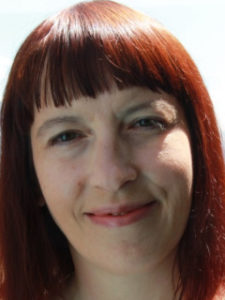
Lidija Dimkovska
Lidija Dimkovska was born in 1971 in Skopje, Macedonia. She is a poet, novelist, essayist, and translator from Romanian and Slovenian into Macedonian. She has published six books of poetry and three novels, translated into more than 20 languages.
She studied Comparative Literature at the University of Skopje and took a PhD in Romanian Literature at the University of Bucharest, Romania. She has worked as a lecturer of Macedonian language and literature at the Faculty of Foreign Languages and Literatures, University of Bucharest, and as a lecturer of World Literature at the University of Nova Gorica, Slovenia. She has participated at numerous international literary festivals and was a writer-in-residence in Iowa, Berlin, Graz, Vienna, Salzburg, and London.
Her two novels Hidden Camera (2004) and A Spare Life (2012) each received the Writers’ Association of Macedonia award for the best prose book of the year. Both novels were also shortlisted for Utrinski Vesnik award for the best novel of the year. Her first book Skriena Kamera (Hidden Camera) has been translated into Slovenian, Slovakian, Polish and Bulgarian.
In 2009, she received the Hubert Burda literary prize for young East European poets and, in 2012, she won the Tudor Arghezi international poetry prize in Romania. A Spare Life also received the European Union Prize for Literature in 2013 and was long-listed for the Best Translated Book Award 2017 in the USA. In 2016 she published her third novel Non-Our, which was shortlisted for the Writers’ Association of Macedonia award for the best prose book of the year, and for the Balkanika international literary award.
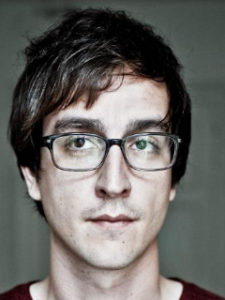
Jasmin B. FRELIH
Jasmin B. Frelih was born in Kranj, Slovenia, in 1986. He studied comparative literature, and literary theory and history, at the Faculty of Arts, University of Ljubljana.
His first novel Na/pol (In/Half) was published in 2013 to considerable media attention and critical acclaim. It received the best literary debut award at the annual Slovenian Book Fair, was shortlisted for the novel of the year and book of the year awards, and was showcased as the Slovenian entry for the 2014 European First Novel Festival in Budapest, Hungary.
His short story collection Ideoluzije (Tiny Ideologies) was published in 2015.
In his five years as a prose fiction editor for the literary review I.D.I.O.T., he worked with some of the best writers and poets of the new Slovenian literary generation. His short fiction, essays and translations of American authors appear in the leading Slovenian literary reviews Sodobnost, Literatura, and Dialogi. His translations of Slovenian poetry into English have been published in Banipal, Versopolis, and international anthologies of the I.D.I.O.T. literary review.
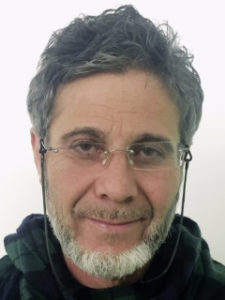
Walid NABHAN
Walid Nabhan was born in Amman, Jordan, in 1966. His family fled Al-Qbeybeh, a small village in the outskirts of Hebron, Palestine, after the 1948 war that established the state of Israel and resulted in the first Palestinian Diaspora.
Nabhan studied at United Nations schools in Amman. He arrived in Malta in 1990, where he studied laboratory technology. In 1998, he graduated in Biomedical Sciences from Bristol University in England. In 2003, he gained a master’s degree in Human Rights and Democratisation from the University of Malta. He has published two collections of short stories in Maltese (Lura d-Dar u Ġrajjiet Oħra li ma Ġrawx in 2009 and Leħen tal-Fuħħar u Stejjer Oħra in 2011) and one novel (L-Eżodu taċ-Ċikonji in 2013) which won the National Prize for Literature in 2014. He also published his first collection of poetry, Fi Triqti Lejha, in 2014. His poetry and articles have appeared in several papers and periodicals. He has also translated contemporary literary works from Maltese into Arabic.
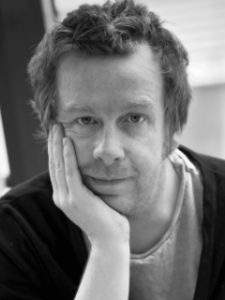
Kevin BARRY
Kevin Barry is the author of the novels Beatlebone and City of Bohane and two short story collections, Dark Lies the Island and There Are Little Kingdoms. He was awarded the Rooney Prize in 2007 and won The Sunday Times EFG Short Story Prize in 2012, the world’s premier short story prize.
City of Bohane was shortlisted for the Costa First Novel Award and the Irish Book Award, and won the Author’s Club First Novel Prize, The European Prize for Literature and the IMPAC Prize.
The book is a futuristic, apocalyptic western-thriller, which is highly influenced by film, graphic novels and popular culture. Barry’s writing is brilliantly vivid, his style darkly humorous, in the mould of Flann O’Brien. A unique and compelling voice, he has already been described by Irvine Welsh as ‘the most arresting and original writer to emerge from these islands in years’.
Beatlebone was the winner of the Goldsmiths Prize and was shortlisted for the Irish Book Awards.

Masatsugu ONO
Moderator/discussant
Masatsugu Ono (b. 1970) maintains a steady output of fiction while working as a professor and researcher of Francophone literature. After doing graduate work at the University of Tokyo, Ono earned his Ph.D. at the University of Paris VIII. In 2001, he published his first novel, Mizu ni umoreru haka (The Water-Covered Grave), which won the Asahi Award for New Writers. His second novel, Nigiyakana wan ni seowareta fune (Boat on a Choppy Bay), won the Mishima Yukio Prize, and in 2015 he received an Akutagawa Prize for his Kyunen-mae no inori (A Prayer Nine Years Ago). In addition to writing other works of fiction such as Mori no hazure de (At the Edge of the Forest), Maikurobasu (Microbus) and Shishiwatari-bana (Lion’s Tread Point), he has also translated works by Èdouard Glissant and Marie NDiaye into Japanese.
EU Delegation to Japan
Europa House, 4-6-28 Minami-Azabu, Minato-ku, Tokyo 106-0047, Japan
10 min walk from Hiroo station (Exit 1, Hibiya line)


